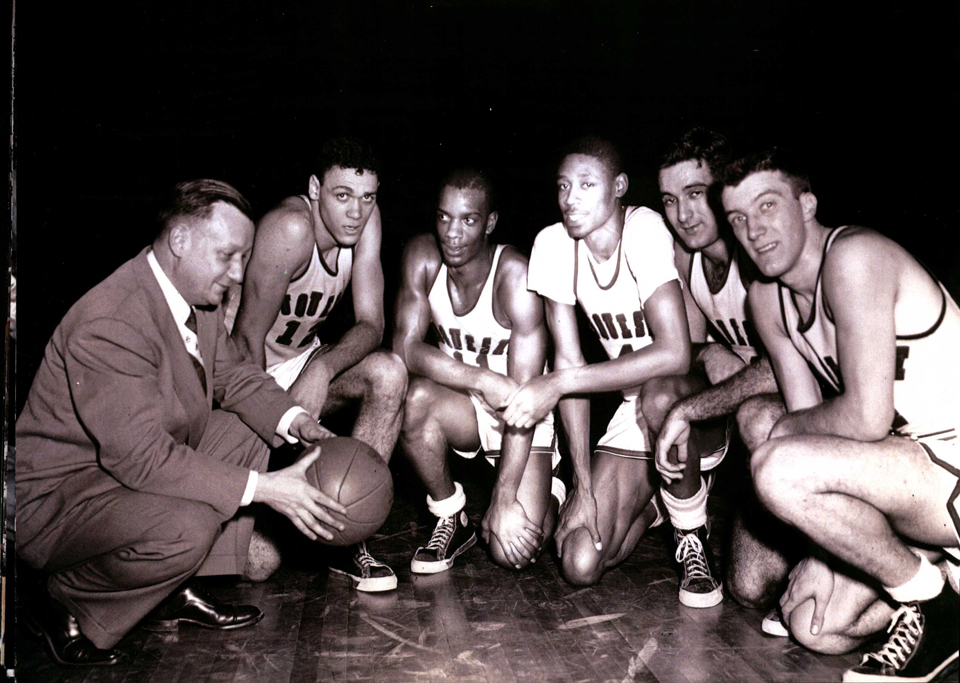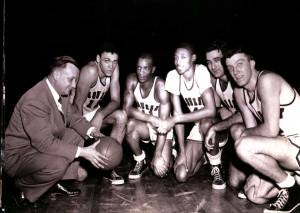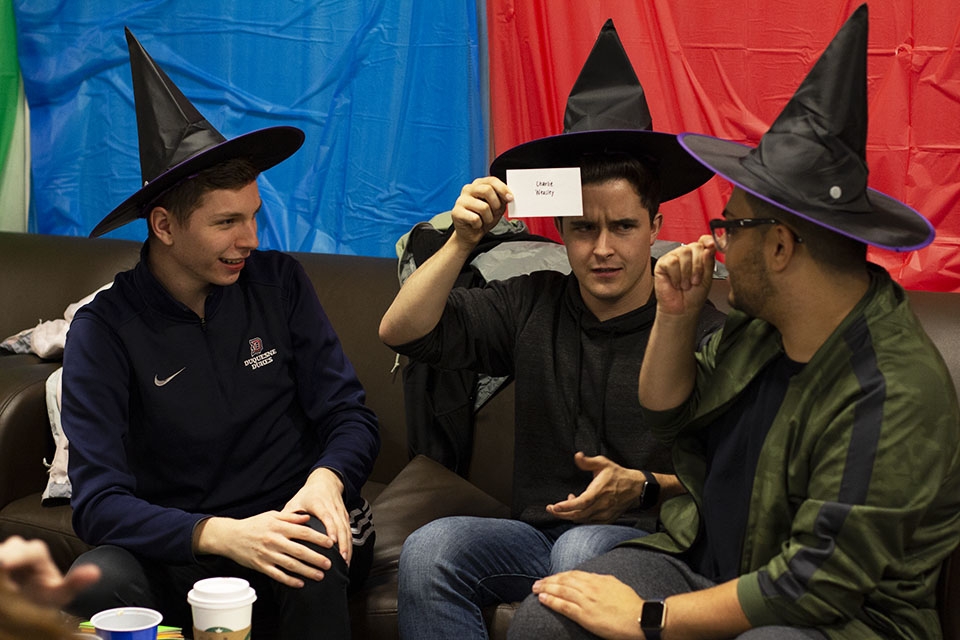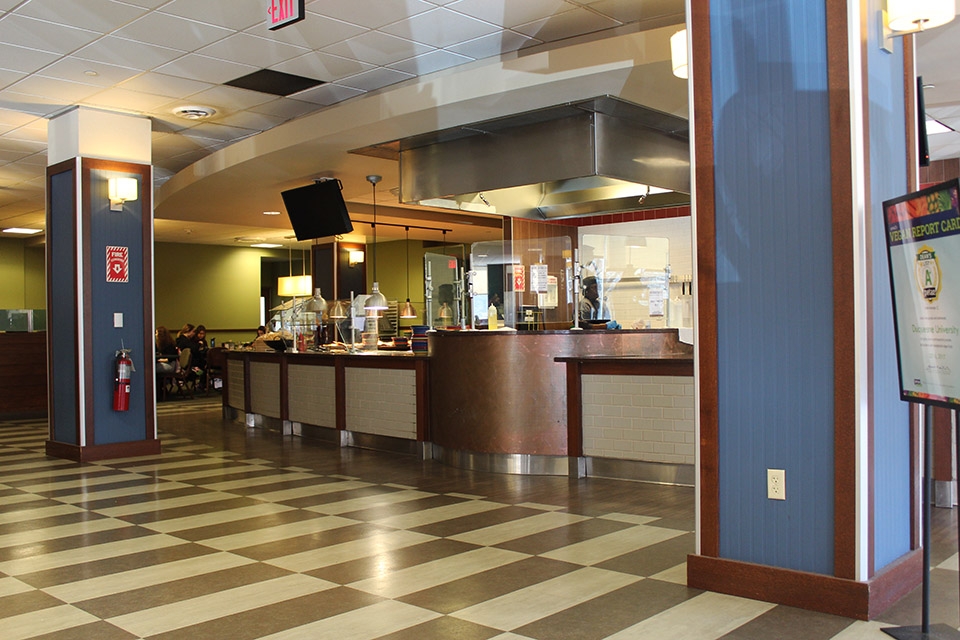

By Joseph Sykes | Sports Editor
In 1914, Duquesne University was only 36 years old, Old Main was one of the tallest buildings in Pittsburgh and the school was set to kick off its first campaign of collegiate basketball. Unbeknownst to students and faculty at the time, over the next 100 seasons, Duquesne’s basketball program would become the Bluff’s most popular sport.
The game’s popularity wasn’t the only thing that saw change during the past century. The rules, opponents and coaches all came and went, but one thing stayed the same: the drive to create a winning program.
Duquesne accomplished that goal many times throughout its storied history. During the 1950s, the men’s team appeared in six NIT tournaments, two NIT finals and captured the NIT title in 1955.
A championship-winning team has evaded the Bluff since then, but according to former Duke Mike James, Duquesne’s incredible basketball history is enough to be proud of.
“Duquesne means more to me now just because of the history and all of the success stories that came out of the system,” James told The Duke.
“You really can’t compete when it comes to teams like the Kentuckys, North Carolinas and the Dukes, but Duquesne can compete when you talk about the success stories coming from what alma mater you graduated from.”
James’ statements echo those of newly-minted athletic director Dave Harper. Harper, who arrived earlier this fall, said that it’s important for students to look back on history to appreciate what we have now.
“The greatest thing [to know] is that you can do it,” Harper said. “It can be done from Duquesne. A lot of kids aspire to do that, but to look [into the past], they can see what they can become.”
At Duquesne, it’s not difficult to look to the past and find extraordinary stories that depict examples of perseverance, determination and tenacity. Cumberland Posey, the Dukes’ first recorded black athlete, and Chuck Cooper, the first black man to play in the NBA, are players who exhibited all three of those traits before, during and after their tenures at Duquesne. Norm Nixon, a member of the 1973-77 Dukes, is another man known for excelling on and off the court both at Duquesne as well as in his NBA career.
A two-time NBA champion with the Los Angeles Lakers, Nixon became a noted philanthropist and sports agent after spending his undergraduate days on the Bluff. He credits his success to an important lesson he learned at Duquesne.
“It’s all about the work you put in,” Nixon said. “It’s not easy. Nobody is going to give it to you. You are going to have to practice and show it on the court.”
Going forward, the Dukes can learn from Nixon’s ideologies and apply them to rebuild that winning culture from years past. But according to Nixon, it’s not just the basketball players who need to step up in order to recreate that culture once again.
“They are going to have to get the support from the school,” he said. “There’s no reason that the arena should not be full every game. You know how people are. If you win, they’re going to come.”




